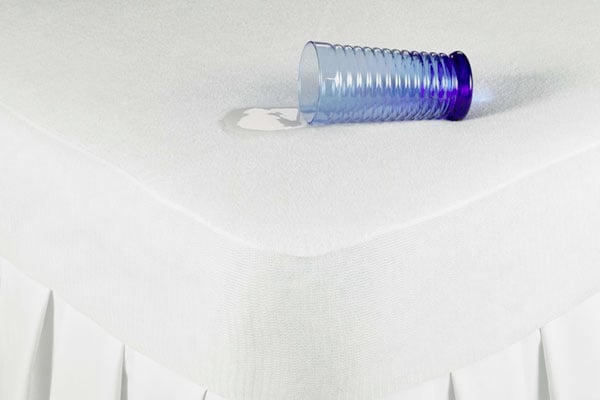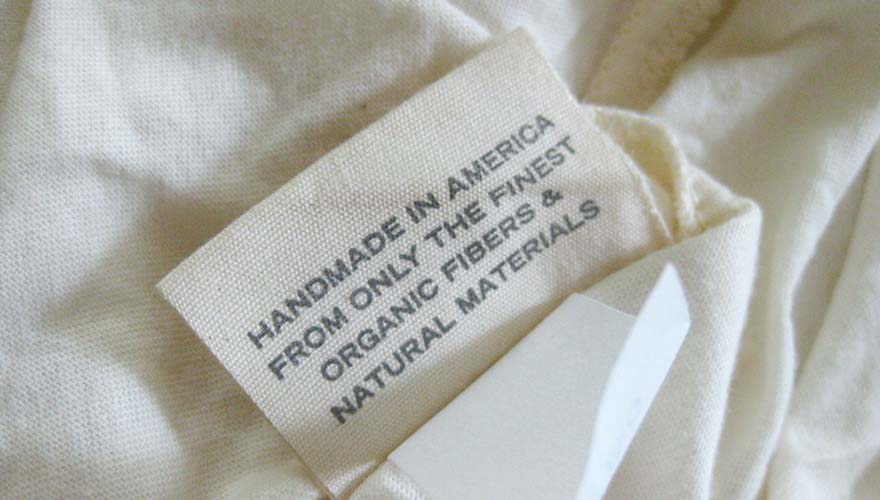An organic mattress protector is a must-have item if you have allergies or want a cleaner, healthier sleep environment.
A dirty bed is not a cozy bed, and for some, dust and other allergens can actually steal rest.
One solution that may help bring happy, healthy sleep back is an organic mattress protector. Keep reading to see how one of these simple covers can improve your sleep environment and protect your mattress investment.
How an Organic Mattress Protector Makes Sleep Better
Many people think of mattress protectors only as the rubbery, crinkly covers designed for children’s beds and incontinence. However, modern ones can be just as comfortable as a fitted bed sheet and can be made of natural and healthy materials.
If you aren’t already using a mattress protector, here are a few reasons you might want to start.
1. Reduces Dust Mites
Although claims of dust mites in mattresses are often used as scare tactics, the microscopic critters are found in pretty much every home and one of their favorite places are indeed beds.
They thrive in humid, warm environments and plush locations – your pillows, mattress, bedding, carpet and drapes are prime locations. Warm and humid sleeping people and mattresses with plush layers create ideal conditions for dust mites.
These tiny arachnids feed on dead skin cells. While they don’t bite people, the mites, their droppings, and dead mites are rather gross to think about sleeping with. Many people also have allergies to them, especially those with asthma, which can disrupt comfortable rest.
Organic mattress protectors don’t eliminate 100% of dust mites, but they do prevent sweat and skin cells from permeating the mattress and help keep mites on the surface, especially when used consistently on a new mattress.
Protectors can also be regularly washed unlike your mattress, eliminate all of the dust mites on the surface that would otherwise be residing inside your bed.
2. Protects Against Spills and Accidents
Perhaps the most obvious benefit of an organic mattress protector is that it provides a waterproof barrier to keep liquids off of your bed. Whether a glass of water or accident, the protector lets you clean up easily and quickly.
Without one, it can be very difficult to thoroughly clean foams and pillow tops. Then, depending on the size of the bed and the spill, you might be waiting days for it to dry out – not to mention risks of mildew and odors.

3. Keeps Sweat, Dander and Oils off Your Mattress
You sweat, drool, excrete oils and shed skin cells every night while sleeping. If you sleep with your pets, so do they! Pet dander and fur and pollen tracked in from outdoors can also contribute to allergies.
And all of that winds up in bedding, pillows and mattress layers over time, creating a less than hygienic environment.
A mattress protector helps keep detritus on the surface of the cover, which can be washed. Bed sheets alone are not enough, as they do not have impermeable barriers.
4. Provides a Hypoallergenic Sleep Surface
Organic cotton is one of the cleanest, most hypoallergenic materials around. Organic textiles do not have pesticide and chemical residue, and usually must be minimally processed to get certified.
This type of surface is ideal for sleep, and complements organic and natural bedding well for people that are concerned about or are sensitive to chemicals.
Amerisleep’s Organic Mattress Protector, for example, features an unbleached, organic cotton jersey surface and an eco-friendly recycled polyurethane backing for breathable, waterproof protection.
Other tips for keeping your mattress healthy and clean include:
- Regularly wash comforters and sheets – at least every two weeks, but more often if you have allergies.
- Use pillow protectors, too – pillows also harbor dust mites, not to mention oils from your face and saliva. Keep your pillow hygienic with a protective cover and frequent washings.
- Don’t let pets in your bed – give Fido and Fluffy their own comfy beds. While pets are cuddly, they bring allergens and dirt into bed.
- Vacuum often – use a HEPA filter vacuum and regularly vacuum floors, the surface of your bed and drapes or any other upholstered items.
- Leave the bed unmade awhile – open up the shades and let your bed sit unmade to allow any moisture to dry. Kingston University researchers suggest that this may help reduce humidity within the bed and discourage dust mites.
Ultimately, using a mattress protector helps protect your bed from stains, odors, dust mites, and other allergens that can affect rest or shorten the lifespan of a bed
The cost of an organic mattress protector proves minimal when compared to the cost of a top-rated mattress, making it a smart investment that gives you more out of your mattress and a healthier sleep environment.
Have any questions about mattress protectors or keeping beds healthy? Do you enjoy sleeping on eco-friendly products?
About the author
Rosie Osmun, a Certified Sleep Science Coach, brings a wealth of knowledge and expertise to the health and wellness industry. With a degree in Political Science and Government from Arizona State University College of Liberal Arts and Sciences, Rosie's academic achievements provide a solid foundation for her work in sleep and wellness. With over 13 years of experience in the beauty, health, sleep, and wellness industries, Rosie has developed a comprehensive understanding of the science of sleep and its influence on overall health and wellbeing. Her commitment to enhancing sleep quality is reflected in her practical, evidence-based advice and tips. As a regular contributor to the Amerisleep blog, Rosie specializes in reducing back pain while sleeping, optimizing dinners for better sleep, and improving productivity in the mornings. Her articles showcase her fascination with the science of sleep and her dedication to researching and writing about beds. Rosie's contributions to a variety of publications, including Forbes, Bustle, and Healthline, as well as her regular contributions to the Amerisleep blog, underscore her authority in her field. These platforms, recognizing her expertise, rely on her to provide accurate and pertinent information to their readers. Additionally, Rosie's work has been featured in reputable publications like Byrdie, Lifehacker, Men's Journal, EatingWell, and Medical Daily, further solidifying her expertise in the field.
View all posts




